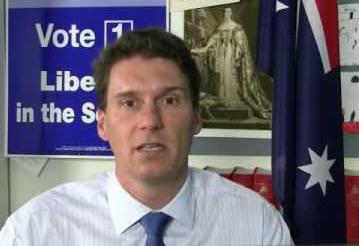Veiled Muslim women have become the true upholders of western traditions of female dress, says Italy’s top imam, who angrily condemned the decision to fine a woman in Italy for wearing a veil that completely covered her features.
Izzedin Elzir, the president of the Union of Islamic Communities in Italy (UCOII) and a former fashion designer, said: “If we go and see the beautiful artistic representations of the Madonna, we see her with the veil. We don’t see her semi-naked, I think. For that reason, I believe it is the Muslims who are protecting the traditions of our country.” The imam said: “I believe Italian tradition is that which can be seen by going to a church, to a museum and seeing the beautiful images of the Madonna with a beautiful veil. That is our tradition.”
A €500 (£430) fine was imposed on Amel Marmouri, a Tunisian woman, who was stopped last week by carabinieri. Marmouri, 26, was covered head-to-toe, though it was unclear whether she was wearing an Afghan-style burqa or the niqab, which is more common on the Arabian peninsula.
Marmouri’s husband, 36-year-old Braim Ben Salah, said they were merely obeying the Qur’an, which said she “may not be looked at by other men”. But Elzir disputed that. “There are two interpretations,” he said. “One interpretation has it that the woman should be totally covered. Another says the woman should be covered totally, except for her face and hands. Both schools of thought are valid and it depends on the woman which school she chooses. The important thing is the freedom of the individual. Whether the face is covered or not covered, this belongs to the private sphere of the individual where we believe our constitution – the Italian constitution – guarantees religious freedom.”
He said the UCOII was not in favour of full veils. But, in a pointed allusion to Italy’s in-your-face variety shows with their scantily clad hostesses, he added: “It’s a personal choice, like a woman who decides to go on television half-naked. That’s her freedom. That’s her choice.”
Elzir said that, when faced with episodes such as the fining of Marmouri, “the [Muslim] community feels really discriminated against. There are serious problems in our country, not whether one wears the full veil or does not use the full veil, but problems of the economy, which is crumbling, [and] of unemployment. I believe the politicians and those who have the responsibility for governing ought to be looking at the reality and trying to resolve the problems of society, rather than creating them.”
Ben Salah said that the fine imposed on his wife meant she could no longer leave their house. “So what is better?” asked the imam. “That we condemn these hundred or so women who cover up their faces to spend the rest of their lives at home?”

 The shadow parliamentary secretary assisting Tony Abbott, Cory Bernardi, has called for Islamic women to be banned from wearing the burqa in a pointer to the growing assertiveness of the party’s conservative wing.
The shadow parliamentary secretary assisting Tony Abbott, Cory Bernardi, has called for Islamic women to be banned from wearing the burqa in a pointer to the growing assertiveness of the party’s conservative wing. Germany’s interior minister has criticized the ban on wearing a full Islamic veil, or burqa, in public, saying Tuesday even a debate would be “unnecessary in Germany.”
Germany’s interior minister has criticized the ban on wearing a full Islamic veil, or burqa, in public, saying Tuesday even a debate would be “unnecessary in Germany.”